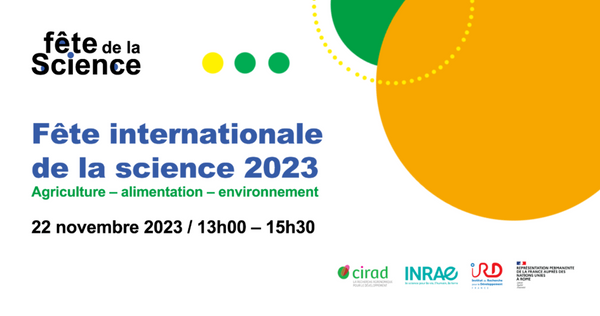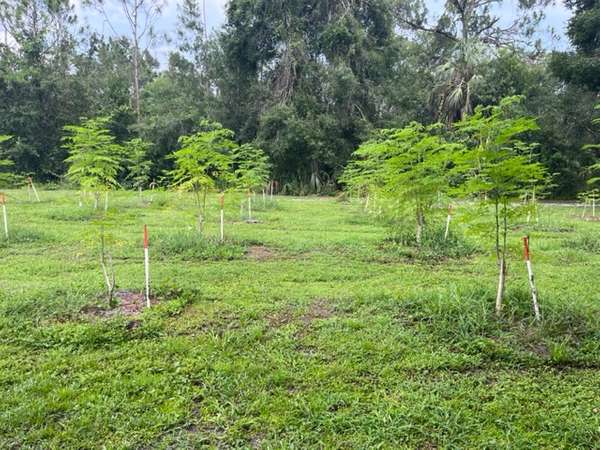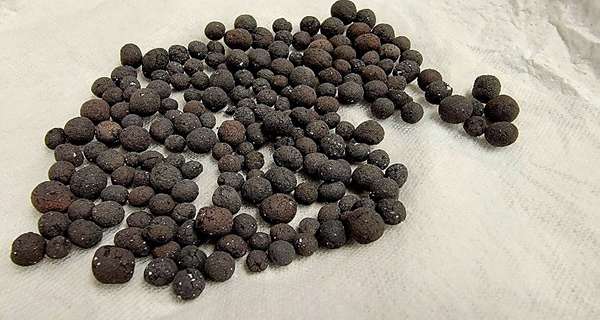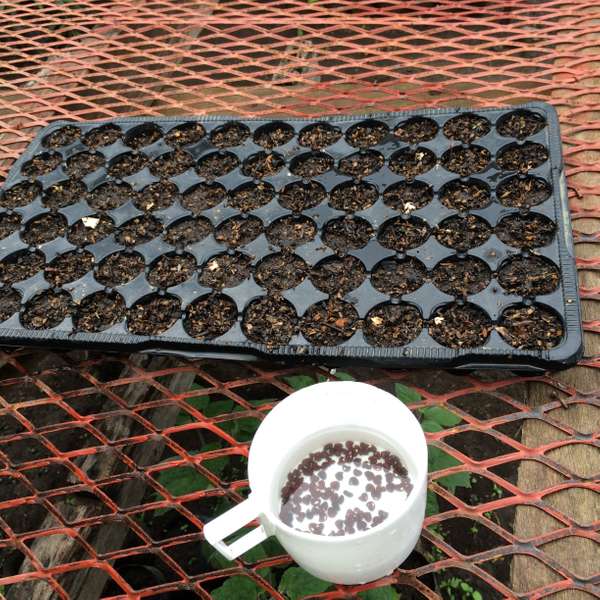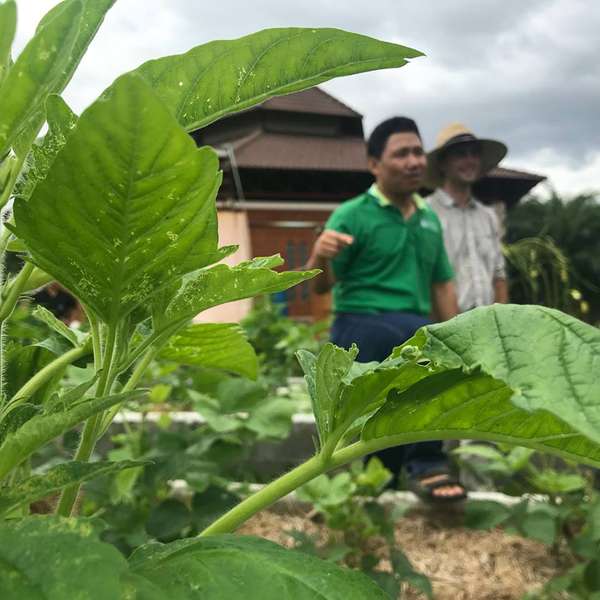ECHOcommunity更新
Now Available! ECHO Technical Note #100: Animal Production Litter Systems 2023-12-19
Litter systems are an approach to hygienic, integrated animal production in which animals are raised in an enclosed space on a floor of organic bedding. Systems with thick bedding material are sometimes called deep litter systems. Litter systems allow you to prioritize animal health by providing conditions like those in animals’ natural environments. Litter systems also help capture animal waste and convert it to usable forms for crop production. ECHO is aware of litter systems for pigs, rabbits, poultry, and ruminants.
This publication is also available in Spanish and French.
I-TEC Installs Solar Panels for ECHO Florida 2023-12-12
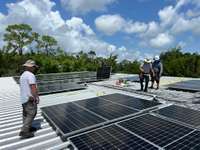 August may not be the preferred month to be installing solar panels on a shop roof in Florida, but our intrepid friends from I-TEC would not be denied. How we appreciate their good work!
August may not be the preferred month to be installing solar panels on a shop roof in Florida, but our intrepid friends from I-TEC would not be denied. How we appreciate their good work!
I-TEC is a non-denominational ministry utilizing volunteers to meet the technical needs of missionaries and not-for-profit organizations worldwide.
Click here to see I-TEC pictures of the project.
Now Available! ECHO Asia 2024-2025 Seed Catalog 2023-11-28
ECHO Asia's Seed Bank recently released the 2024-2025 seed catalog. This new and improved catalog has a unique format to help you, our network member, better understand each seed and crop better. The catalog is grouped colorfully by category (fruits, grains, herbs & integrated pest management, leguminous trees, oil seeds, pulses & green manure cover crops, vegetables, and seed bundles). Each seed description includes a photo, elevation information, and other helpful details such as if the crop can be used for fodder or has some level of toxicity. If you are looking for a particular species or variety, the index at the back of the catalog can help you find what you are looking! Plants are indexed by Latin name, English common name, and Thai common name.
Download the catalog (PDF) Browse the ECHO Asia seed store online
ECHO is looking for a Director to lead our East Africa Regional Impact Center, located in Arusha, Tanzania 2023-11-21
After many years of service, our Director of the ECHO East Africa Regional Impact Center is retiring and we are seeking a successor director to lead our dynamic East Africa Regional Impact Center team to continue to impact the region via the ECHO network. Since 2012, ECHO’s East Africa Impact Center has been serving our network across the region. The second of four RICs around the world, they have proven the adaptability and robustness of the RIC model to contextualize ECHO’s services to the unique needs and ecological/cultural contexts of those we serve. The first ECHO East Africa Director is now planning to retire in late 2024. This will allow the right candidate time to overlap with this passionate and highly effective individual.
The new director will expand and strengthen the capacity of the diverse regional network to defeat hunger and improve lives through sustainable food and agricultural strategies in East Africa. The director is responsible for building upon the current regional network and serving that network with joy by identifying, validating, sharing, and measuring the efficacy of contextualized agricultural strategies (4 core functions of ECHO) with technical excellence. In short, network building, team building, and training experience will be essential qualities of an effective director.
This position encompasses roles and responsibilities that are critical to the continued relevance of ECHO in the coming years to defeat hunger and bring restoration to people and the planet. Please help us share this opportunity with your network as we trust God to provide the perfect person for this time in ECHO's history.
Invitation to the ECHO Network: 3rd edition of the International Science Festival -“Science(s) & Agenda 2030, and beyond” 2023-11-13
Cirad, INRAE, IRD, and the Permanent Representation of France to the United Nations in Rome are co-organizing the third edition of the "International Science Festival: agriculture, food, environment," November 22 from 1 p.m. to 3:30 p.m (CEST - Rome time), on line.
All ECHOcommunity members are being invited to participate in this event.
We will discuss about SDGs/Agenda 2030 – Research – Agroecology – Zoonoses prevention – Space – soils and foresight
Un grand merci et n’oubliez pas de vous inscrire – be warmly welcome
Trees with Edible Leaves - Now available in Spanish and French! 2023-11-07
The Perennial Agriculture Institute has published a new resource by Eric Toensmeir (2022) entitled Trees with Edible Leaves. This free, downloadable book includes over 100 cultivated species of perennial plants. Tonesmeier first introduces the value, geographic distribution, and versatility of perennial plants with edible portions. He includes summary information about common nutrients and the abundance of nutrients found in cultivated perennial plants. Appendix A contains detailed nutritional information.
Publishers have now released editions in Spanish and French and ask to be contacted if additional translations are desired. Tonesmeier’s Trees with Edible Leaves is available free online and through ECHOcommunity.org and the mobile app.
Download Árboles con hoja comestibles
Download Arbres à feuilles comestibles
From the Farm: Moringa for Seed Production 2023-10-31
Over the years, ECHO's seed bank in Florida has sourced Moringa oleifera seeds from both local and international sources. In 2009, a local church graciously allowed ECHO to plant a specific variety of M. oleifera on their property and later manage and harvest the seeds. That experience raised our awareness of local production's value in providing seeds to our network in light of the difficulty in sourcing seeds internationally. In 2021, we decided to produce M. oleifera seeds on our Global Farm in Fort Myers, Florida. This entailed a decision to prioritize seed production over that of trialing and demonstrating multiple varieties. An isolation distance of at least 500 m between M. oleifera varieties is recommended to prevent cross-pollination by bees. To offer and maintain genetic purity of a single variety, instead of seeds with a genetic mix of multiple varieties, we decided to grow just one variety on the farm for seed. Before doing this, we conducted a few trials to identify a variety with good production of mild-tasting leaves within easy reach from the ground. This meant we needed a variety with good branching characteristics leading to outward instead of just upward growth. We identified a variety, PKM-1 from Ghana, that fits those parameters. We removed all the other varieties from the farm and currently have 23 PKM-1 trees planted. As these trees yield seeds, we will plant more trees on the farm and offer seeds to our network. We look forward to serving our network with this variety!
Research Update: Clay Beads for Drying and Preserving Seeds 2023-10-17
At ECHO in Florida, staff have been working to develop a method for small-scale farmers and community seed banks to make their own desiccant to dry and preserve seeds. The three main requirements are clay, wood ash, and a way to heat the beads. Wood ash is a common byproduct of wood-burning cookstoves, and clay can be obtained from clay soil found in many parts of the world. Heating can be done with a forge used by local blacksmiths.
Keeping some desiccant with the seeds, in their storage containers, will help keep seeds dry.The clay beads ECHO has been working with can easily be added to clay pots, tin cans, and glass or plastic bottles. Some closed containers are not perfectly sealed. Even glass jars are not completely airtight if the lids do not seal well. In such cases, keeping some desiccant with the seeds, in their storage containers, will help keep seeds dry. If using well-sealed containers, a farmer could 1) use the desiccant to dry seeds initially and then remove it or 2) keep the desiccant with the seeds if she/he will need to open the container from time to time to access the seeds.
Read More Watch the video online
EDN #161 Now Available 2023-10-03
In this issue:
- Factors that Impact Seed Germination
- Echoes From our Network: Moringa Spacing Considerations
- From ECHO’s Seed Bank: Clay Beads for Drying and Preserving Seeds
- Books, Websites, and Other Resources: Aprovecho.org- Information on Fuel-Efficient Cookstoves
Factors that Impact Seed Germination
ECHO Staff and Network Members
Excerpt:
Another important cause for seed germination or seedling failure includes planting seeds too deep or too shallow. If seeds are planted too deeply, the seed may not contain enough energy to push the shoot out of the soil before it exhausts its food reserves (endosperm). If seeds are planted too shallow, roots may not be anchored deep enough, or seeds may dry out easily. As a general rule, you should plant seeds three to four times the width of the seed (Gilroy, 1986). Small seeds need little or no soil covering but are extremely vulnerable to drying out so make sure to water frequently during the first few weeks of these seeds’ life. Larger seeds have greater amounts of energy to push the first shoot (plumule) through the soil and into the air above the soil. Orientation of the seed being sown is not vital as seeds innately sense gravity and will send shoots up and roots down.
CED Webinar on Agriculture Training and Savings Groups Now Available! 2023-09-19
Robert Morikawa from Plant with a Purpose shared research conducted by Hope International and Plant with a Purpose in Burundi for the first-ever Agriculture Community of Practice. The community of practice around agricultural development will continue to meet and share important information with each other. This space is meant to focus on the assets and needs of smallholder farmers.
Watch the Webinar Learn more about the Community of Practice
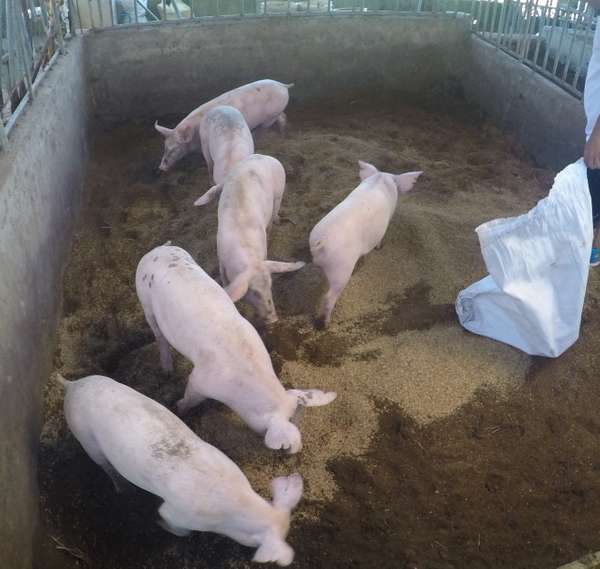
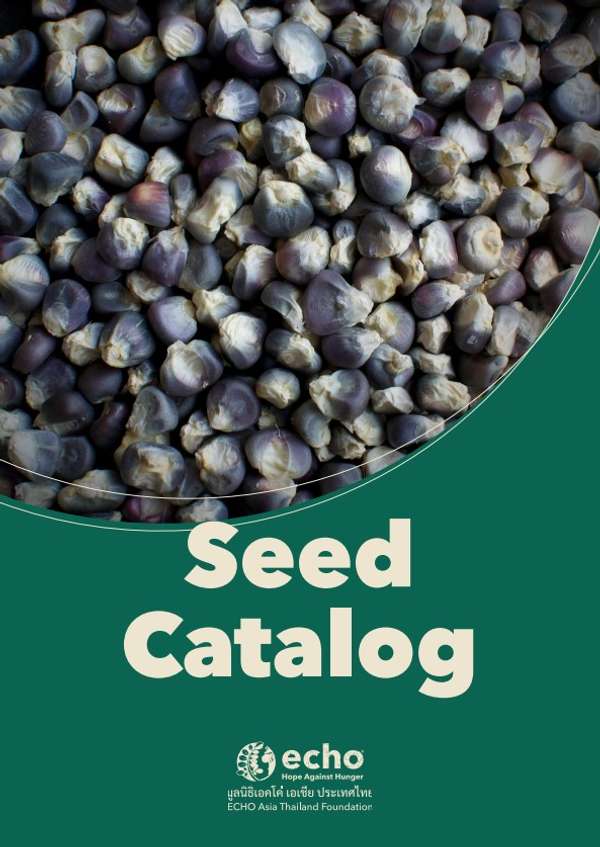
.jpg?w=600)
